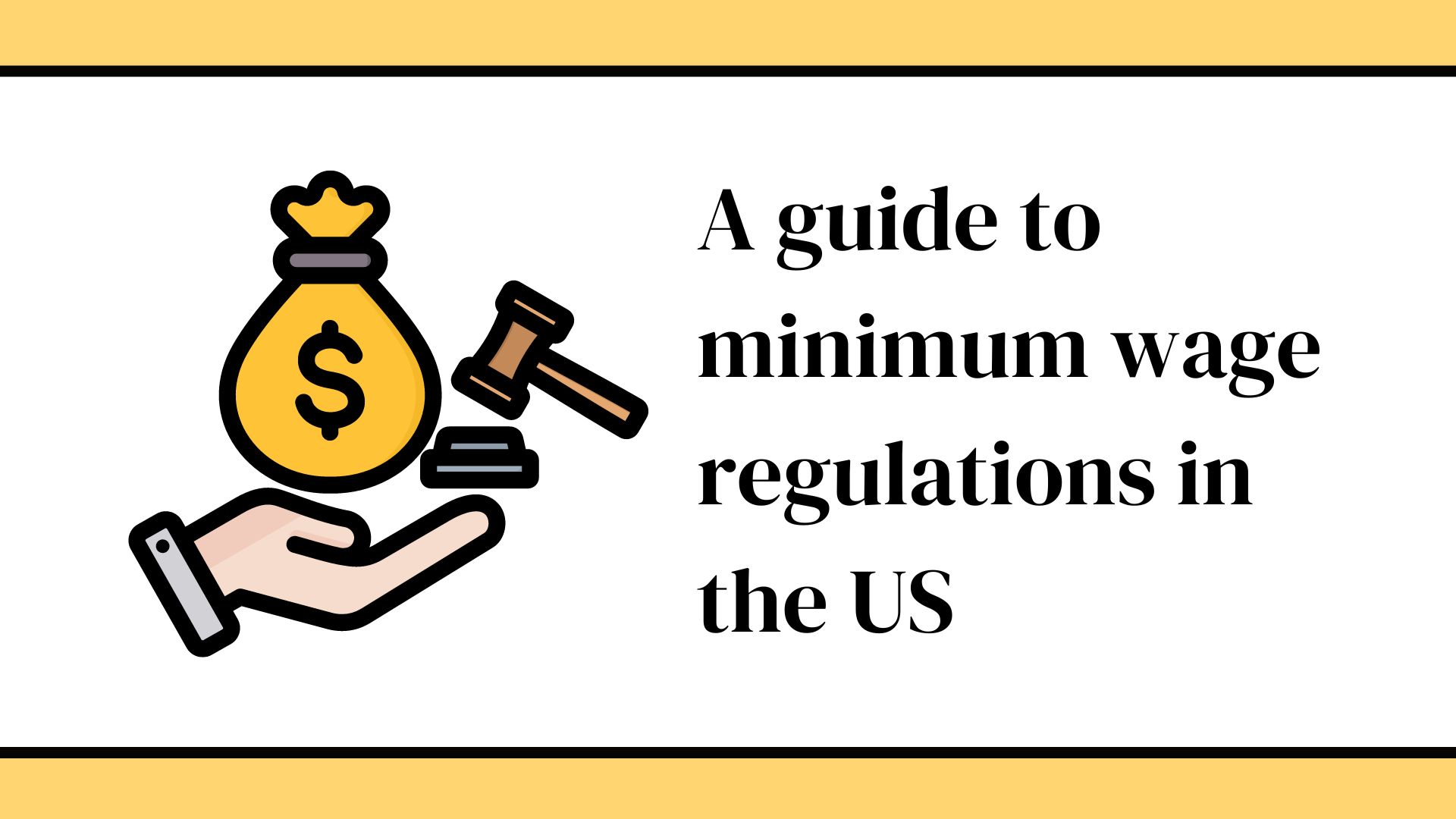What is minimum wage?
Minimum wages have been defined as the minimum amount of remuneration that an employer is required to pay wage earners for the work performed during a given period, which cannot be reduced by collective agreement or an individual contract.
Who governs minimum wage?
In the US, the Fair Labor Standards Act (FLSA) gives you the right to a minimum wage. The Department of Labor’s Wage and Hour Division enforces these rights.
The first U.S. minimum wage was instituted under the Fair Labor Standards Act of 1938. Since then, Congress has raised the minimum wage 22 times and changed who is covered under it.
On a federal level minimum wage sets the lowest amount per hour that most employees are entitled to under the FLSA. Currently, employers subject to the Fair Labor Standards Act must pay the current Federal minimum wage of $7.25 per hour. However, states and localities may have their own minimum wage rates, which can be higher than the federal rate.
Many states and localities have their own minimum wage laws, which can differ from the federal minimum wage. Recruiters must be aware of the minimum wage requirements specific to the locations where their clients want to hire. These state and local laws can also have different provisions regarding exemptions, tipped employees, and annual adjustments for inflation.
Currently, 30 states in the US have their minimum wage set above the federally mandated level. For example, California, Washington, New York and Massachusetts have some of the highest basic minimum rate.
You can view minimum wage laws state-by-state on the US Department of Labor website.
Minimum wage exemptions and exceptions
While most employees are entitled to the minimum wage, there are certain exemptions and exceptions under the FLSA. For example, certain categories of workers such as tipped employees, students, and disabled workers may be subject to different minimum wage rates or exemptions. Recruiters should understand these exemptions to ensure compliance.
Overtime pay is another important aspect related to minimum wage regulations. Under the FLSA, non-exempt employees are entitled to overtime pay at a rate of at least one and a half times their regular rate of pay for hours worked beyond 40 in a workweek. The regular rate of pay used to calculate overtime must comply with minimum wage regulations. For more on overtime regulations, visit our blog: Everything you need to know about overtime in the US.
Enforcement and penalties
The Department of Labor (DOL) is responsible for enforcing minimum wage laws at the federal level. Violations of minimum wage regulations can result in penalties, including back wages owed to employees, civil monetary penalties, and even criminal penalties in severe cases of non-compliance.
Why is it important for recruitment companies to know minimum wage regulations?
Recruitment companies must understand US minimum wage regulations to ensure candidates are placed in roles that offer legally mandated compensation. Ignorance of these laws could lead to legal consequences and damage to the reputation of both the recruiting firm and its clients. You can avoid this by working with a specialist Employer of Record.
Additionally, knowledge of minimum wage regulations enables recruiters to negotiate fair wages, attract top talent, and foster positive relationships with both candidates and employers.
